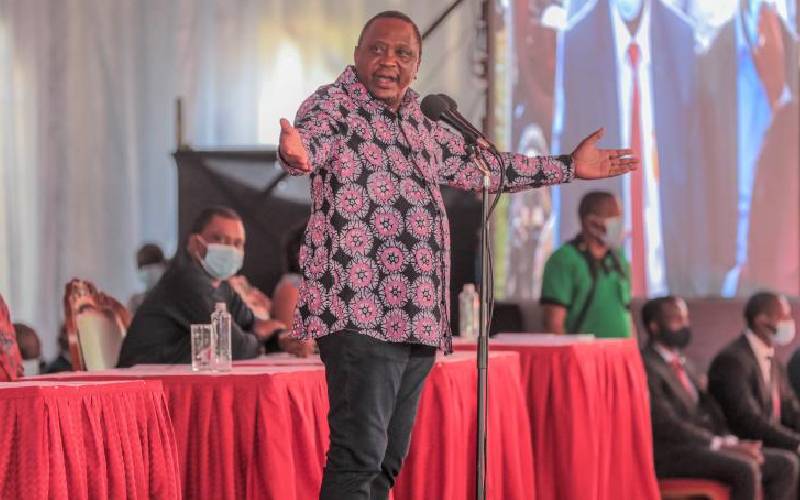×
The Standard e-Paper
Join Thousands Daily

President Uhuru Kenyatta when he met a delegation of leaders from Mt Kenya Region at Sagana State Lodge in Nyeri.[Kibata Kihu, Standard]
The last two weeks have not been particularly pleasant for President Uhuru Kenyatta after the High Court derailed the BBI train and his party lost two by-elections in his strongholds. But he has been through worse. We trace a string of setbacks that dogged his early career to see if he can apply what he learnt to pull himself out of the present muddle.







